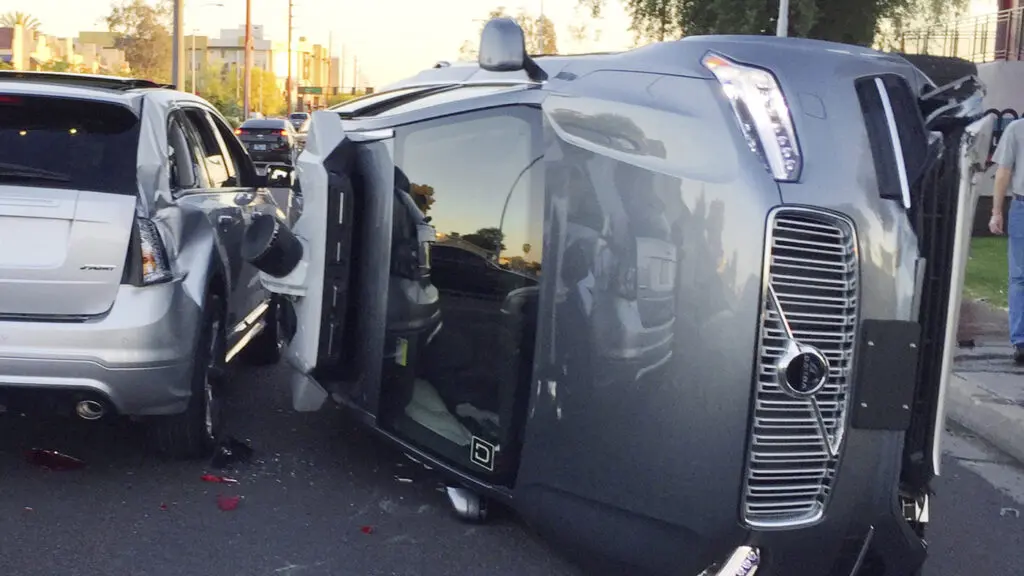Emerging Issues Related To Autonomous Vehicles
November 25, 2024 by Susan MohrSafety And Liability Concerns
Safety and liability concerns are paramount as autonomous vehicles become more prevalent. Ensuring the safety of passengers, pedestrians, and other road users is a complex challenge that requires robust technology and stringent regulations. A critical concern is the reliability of autonomous systems in responding to unpredictable events, which could lead to accidents if not properly addressed. The question of liability in the event of a collision involving an autonomous vehicle also poses significant legal challenges, as traditional concepts of driver responsibility may no longer apply.

Manufacturers, software developers, and vehicle owners could potentially share liability, necessitating new legal frameworks. Additionally, the cybersecurity of autonomous vehicles is crucial, as vulnerabilities could be exploited to compromise safety. Effective collaboration between industry stakeholders, policymakers, and researchers is essential to address these concerns and foster public trust in autonomous technology.
Ethical And Moral Dilemmas
As autonomous vehicles become increasingly integrated into our transportation systems, they bring with them a host of ethical and moral dilemmas that society must grapple with. One of the central concerns is the decision-making algorithms that dictate how these vehicles respond in critical situations. For instance, in scenarios where a collision is inevitable, these vehicles must make split-second choices about how to minimize harm, raising questions about whose safety takes precedence.
Another dilemma involves accountability and liability in the event of an accident. Determining who is responsible—the manufacturer, the software developer, or the vehicle owner—becomes complex. Privacy concerns also emerge, as autonomous vehicles rely on vast amounts of data, potentially leading to misuse or unauthorized surveillance. Additionally, there is the risk of exacerbating existing social inequalities if access to this technology is not equitably distributed.
Regulatory And Legal Challenges
Emerging issues related to autonomous vehicles present significant regulatory and legal challenges. The development and integration of these vehicles necessitate an evolution in existing laws to ensure safety, liability, and compliance. One major concern is determining liability in the event of an accident involving an autonomous vehicle. Traditional frameworks assign blame based on human error, but with autonomous systems, the responsibility may shift towards manufacturers or software developers, demanding new legal precedents.
Furthermore, there are challenges in creating consistent regulations across different jurisdictions, as local, state, and federal bodies may have conflicting standards. Privacy and data security also pose concerns, given the extensive data collection required for vehicle operation. Ensuring protocols are in place to protect consumer information is paramount. Balancing innovation with public safety and privacy demands a proactive approach from regulators to address these complex issues effectively.
Technological Advancements And Limitations
The realm of autonomous vehicles has witnessed remarkable technological advancements, driving progress in machine learning algorithms, sensor integration, and real-time data processing. Machine learning has significantly enhanced the decision-making capabilities of these vehicles, allowing them to adapt to diverse driving conditions and learn from new scenarios. Sensor technology, including LiDAR, radar, and camera systems, has evolved to provide comprehensive environmental awareness and enable precise navigation.
Despite these advancements, significant limitations still hinder the widespread adoption of autonomous vehicles. One primary challenge is the ability to ensure safety and reliability in complex urban environments with unpredictable human behavior. Moreover, adverse weather conditions and unclear road markings pose hurdles for even the most sophisticated sensors. Additionally, the high cost of implementing these advanced technologies remains a barrier, restricting the accessibility and scalability of autonomous vehicle deployment.
Impact On Employment And The Economy
The emergence of autonomous vehicles presents profound implications for employment and the economy. As these vehicles integrate into mainstream use, traditional roles in the transportation sector, such as truck drivers, taxi operators, and delivery drivers, face potential displacement, leading to significant labor market shifts. While the demand for skilled workers in technology and vehicle maintenance may increase, there is a pressing need for reskilling programs to ease the transition for those affected.
Economically, autonomous vehicles promise increased efficiency and reduced costs in logistics, potentially lowering goods prices and boosting consumer spending. However, the regulatory and infrastructural investments required to accommodate these vehicles could strain public and private finances. Moreover, the redistribution of economic opportunities might favor urban areas over rural regions, exacerbating existing disparities. Balancing these shifts will be crucial to maximizing the benefits while mitigating negative consequences.
Privacy And Data Security Issues
As autonomous vehicles become increasingly prevalent, privacy and data security issues emerge as significant concerns. These vehicles rely on vast amounts of data to function effectively, including GPS location, video footage, and even personal preferences of the passengers. The collection and sharing of this data raise questions about who has access to it and how it is being used or potentially misused.
Unauthorized access or hacking of these systems could lead not only to privacy breaches but also to dangerous situations if vehicle controls are compromised. Moreover, data collected by autonomous vehicles might be shared with third parties, such as insurers or advertisers, without clear consent or transparency. Ensuring robust cybersecurity measures and establishing clear regulations regarding data ownership and privacy rights are essential to protect users and maintain trust in this advancing technology.
For more information about our MVA signed cases and verified call transfer leads, contact us at te**@******tg.com.
Get started before your competitors do …there is a limit to how many clients we can onboard.
CONTACT US FOR A QUOTE. CALL 866-695-9058 OR USE OUR REQUEST A QUOTE FORM.
Susan Mohr
Mohr Marketing, LLC
CEO and Founder


Recent Posts
- Ozempic Lawsuit Updates April 2025
- Proposed Legal Reforms For Expanding Liability
- Pharmaceutical Errors & Legal Implications
Categories
- Business Financing
- Call Verified MVA Leads
- Compliance Program
- Lead Generation For Chiropractors
- Lead Generation For Criminal Attorneys
- Lead Generation For D&A Treatment Centers
- Lead Generation For Eye Doctors
- Lead Generation For Family Law Practices
- Lead Generation For PI Law Firms
- Lead Generation For Plastic Surgeons
- Leads For Healthcare Professionals
- Leads For Insurance Industry
- Legal Leads
- Legal Updates
- Mass Tort Leads
- Medicare and Medicaid Leads
- Merchant Funding Leads
- Online Marketing Strategies
- Pre-Settlement Funding
- Signed MVA Cases
- Tort Updates
Archives
Copyright © 2024 Mohr Marketing, LLC. All Rights Reserved.


